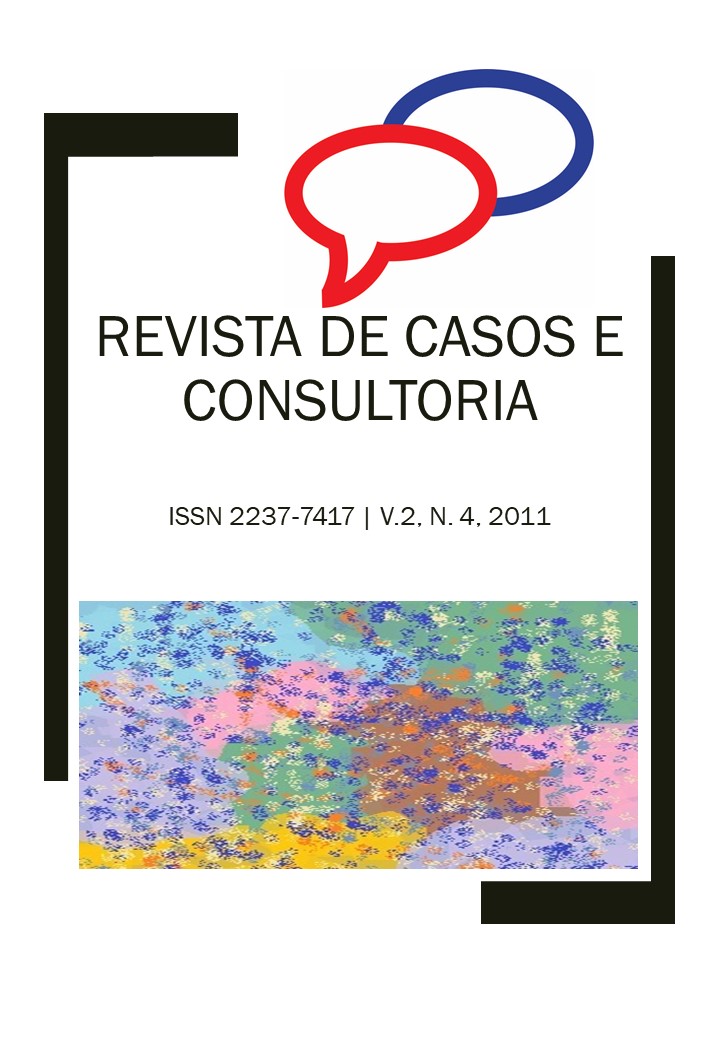COMPETITIVE STRATEGIES APPLIED TO TOURISM: AN ANALYSIS OF THE INN POSICONAMENTO "TOCA OWL" (PIPA - RN)
Keywords:
Tourism. Strategic Positioning. Theory Resources. Venture Hospitality Burrow Owl.Abstract
This study is part of the interface between theory and empirical administration and tourism, with a view to understanding the dynamics of the tourism market, relevant for its peculiarity and steady socioeconomic growth. So is aimed to analyze the strategic positioning adopted by the inn "Burrow Owl", a tourism success and international renown, with category "Esmeralda", the highest decoration associated with the "Roadmap Charme", one of the most significant associations hosting nationwide. To this end, we conducted a review of theoretical assumptions about business strategies, focusing on two models consolidated analysis of market competitiveness, testing "SWOT" Andrews and the model of the "Five Forces" of Michel Porter, will be in situ observation and semi-structured interviews , to support the formatting of this case study. The data collected show the privileged position of the company in the market in which it operates, as well as the optimization of available resources from the opportunities of the medium, ensuring the survival of the company two decades and international awards for magazines. Valid this study was to enhance the relevance of theoretical and empirical connection between management theories and tourism market.
Downloads
References
ANDRADE, José Vicente de. Turismo Fundamentos e dimensões. São Paulo: Ática. 2002.
GIL, Antônio Carlos. Como elaborar projetos de pesquisa. São Paulo: Atlas, 1991.
GRANT, Robert M. Direccion estrategica: conceptos, tecnicas y aplicaciones. Madrid: Civitas, 1996.
INFOGLOBO (2011): http://oglobo.globo.com/viagem/mat/2011/03/16/de-norte-sul-do-pais-national-geographic-lista-os-19-hoteis-mais-autenticos-do-brasil-924022739.asp#ixzz1PCsaZBjy
KOTLER, Philip; KELLER, Kevin Lane. Administração de Marketing. 12 ed. São Paulo: Pearson. 2010.
KRIPPENDORF, Jost. Sociologia do turismo: para uma nova compreensão do lazer e das viagens. 3.ed. São Paulo: Aleph, 2003.
KUAZAQUI, Edimir. Marketing Turístico e de Hospetalidade: Fonte de empregabilidade e desenvolvimento para o Brasil. São Paulo: Makron. 2000.
David Menezes; FILHO, Jamil Moysés; TORRES, Maria Cândida Sotelino;RODRIGUES, Murilo Ramos Alambert. Estratégia de empresas. Série empresarial 6.ed. São Paulo 2005.
MAROTO,Juan Carrión. Teoría de recursos y capacidades. Disponível em : http: // www.um.es/cugio/ conocimiento/conceptos.htm Acesso em: 31 de abr. 2004.
MINTZBERG, Henry Estrutura e dinâmica das organizações. Lisboa: Dom Quixote, 1998.
MINTZBERG, Henry; QUINN, James B. O processo da estratégia. Porto Alegre: Bookman, 2000.
MINISTÉRIO DO TURISMO. Documento Referencial do Turismo no Brasil 2011-2014. Brasília, MTur, 2011.
NORILER, Ida Luciana Martins; ANDRADE, Arnaldo Rosa de. A gestão estratégica e a teoria dos recursos e capacidades no CRIEM – Centro de Referência em incubação e empreendedorismo de Blumenau : a opinião das empresas incubadas. Gestão & Regionalidade - No 64 - mai-ago/2006
Organização Mundial do Turismo. http://unwto.org/en/press-release/2011-04-07/un-comes-together-promote-tourism-development. Extraído día 26/04/11
PALOMO (2000). Manuel Figuerola, Introducción al estudio económico del turismo, primera edición, civitas : Barcelona.
PANOSSO NETTO, Filosofia do turismo: Teoria e Epistemologia. 2.ed. São Paulo:Aleph. 2011
PORTER, Michael E. Estratégia competitiva, Técnicas para análise de indústrias e da concorrência. 2.ed. São Paulo: Campus 2004
RUSCHMANN, Doris van de Menne. Marketing turístico: Um enfoque promocional. 4.ed. Campinas, São Paulo: Papirus, 2000.
VASCONCELOS, Flávio C. ; CYRINO, Álvaro B. Vantagem competitiva: Os modelos teóricos atuais e a convergência entre estratégia e teoria organizacional. São Paulo: Revista de Administração de Empresas nº4 V. 40. , 2000
WORLD ECONOMIC FORUM. Travel and Tourism Competitiveness Report (TTCR). Genebra/ Suiça, 2011.
YACUZZI. E.. El estudio de caso como metodología de investigación: Teoría, mecanismos causales y validación. Universidad del CEMA, Buenos Aires, 2005.

 Português (Brasil)
Português (Brasil) English
English Español (España)
Español (España)